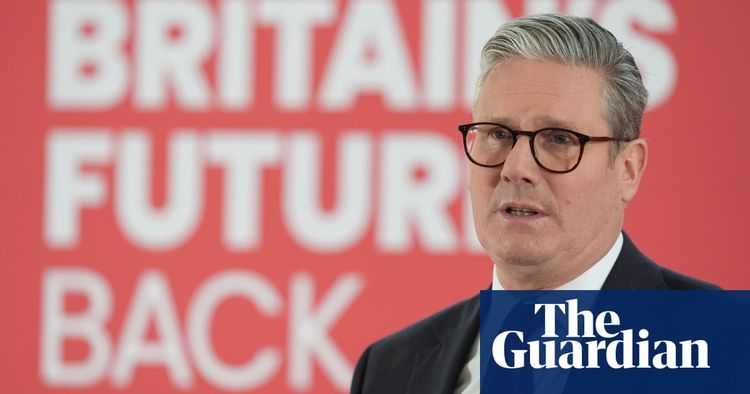Keir Starmer expected to make it to No 10 despite his low personal popularity

Many people believe that Keir Starmer will become the next prime minister after the general election, even though he's not much more popular than Ed Miliband was during the 2015 election.
Latest surveys indicate that the Labour party is poised to secure a resounding win in July. The polls reveal that the party has established a commanding lead of 20 points, which could translate to a sweeping success.
Based on the data beneath the surface, it appears that Starmer and his political party have not gained any additional popularity or trust since the 2015 elections, where the Conservatives were successful in obtaining a majority.
According to a recent report by The Guardian, Ipsos polling company data reveals that fewer voters believe that Labour is capable of governing than they did in 2014. Additionally, fewer people think that the party has a competent team of leaders and that it comprehends the issues faced by the UK.
According to Ben Page, who is in charge of Ipsos, the feelings towards Starmer are the worst that Ipsos have seen for an opposition leader who has a high voting intention. The driving force behind politics seems to be more from anger towards the Tories rather than excitement towards what Labour is offering.
Ever since assuming the role of party leader last year, Starmer has made significant changes to Labour's policies, staff members, and successfully improved their standing in the polls.
After being elected with the promise of continuing the work of former leader Jeremy Corbyn, Starmer quickly began to reverse many of the policies outlined in the party's 2019 manifesto.
Things sped up after the Hartlepool byelection in 2021. Labour lost big time to the Tories, marking just the second instance where a governing party's vote share had grown in a byelection since 1982.
Ever since Starmer took over the leadership, he has abandoned the promises of eliminating university tuition fees, raising the income tax for the wealthiest 5% of earners, and establishing government ownership of rail, mail, water, and energy.
He had also pledged to invest £28 billion per year in green initiatives, but later reneged on that promise. Additionally, he weakened a key policy aimed at advancing workers' rights.
One of the most noteworthy changes is that he went from assuring the preservation of free movement when the UK left the European Union to firmly asserting that a Labour administration wouldn't consider rejoining the customs union.
Starmer has taken a similar approach to Tony Blair between 1996 and 1997. During that time, Blair was compared to a person cautiously carrying a valuable Ming vase across a shiny floor.
Additionally, their efforts have been fruitful as Labour's popularity has soared to 44% from its previous standing of 29% during the last election. This surge has been largely due to their success in gaining the support of those who had previously voted in favor of leaving the European Union in areas where the election outcome could be strongly influenced.
Although the careful approach of the Ming vase plan has its benefits, there are also some drawbacks. An outcome of this plan is that it has caused the disconnection of specific traditional Labour followers, resulting in the party being worried about forfeiting the city seats of Bristol Central and Sheffield Hallam.
A few people think that Starmer's decision to stay aligned with the government's stance on Gaza may lead to a defeat in critical constituencies with a significant Muslim community.
However, many individuals within the Labour party are concerned as they feel that this has left the party exposed to potential criticisms in the event of a nationwide election.
One Labour insider disclosed that having nothing to protect can result in being constantly attacked by the opposition, which in turn allows them to take control of the entire agenda.
Starmer's team is dismissing any worries relating to this matter. Morgan McSweeney, Starmer's primary election planner, thinks that the greater danger is presenting grand plans for post-election outcomes that ultimately fail during the campaign.
At the beginning of the year, McSweeney gave a presentation to the shadow cabinet. During this briefing, Labour frontbenchers were shown several slides highlighting that in the past eight elections worldwide, the political party which had been in the lead ultimately fell apart in the last few weeks leading up to the election.
He drew attention to the 2017 national election, which was initiated by Theresa May to obtain a greater number of seats, but had a negative impact as she lost seats due to a flawed commitment to revise the social care system.
In case Starmer emerges victorious, he'll be the fourth person from the Labour party to lead them into government post World War II. Moreover, in the last fifty years, he'll be only the second person to do so.
In contrast to Blair, he will take over an economy that has recently recovered from a recession, limited government funds, and deteriorated public services.
A member of the Labour party expressed that the benefit of utilizing the Ming vase strategy is that even in the event of a victory, the anticipated outcome would not be very high.









































